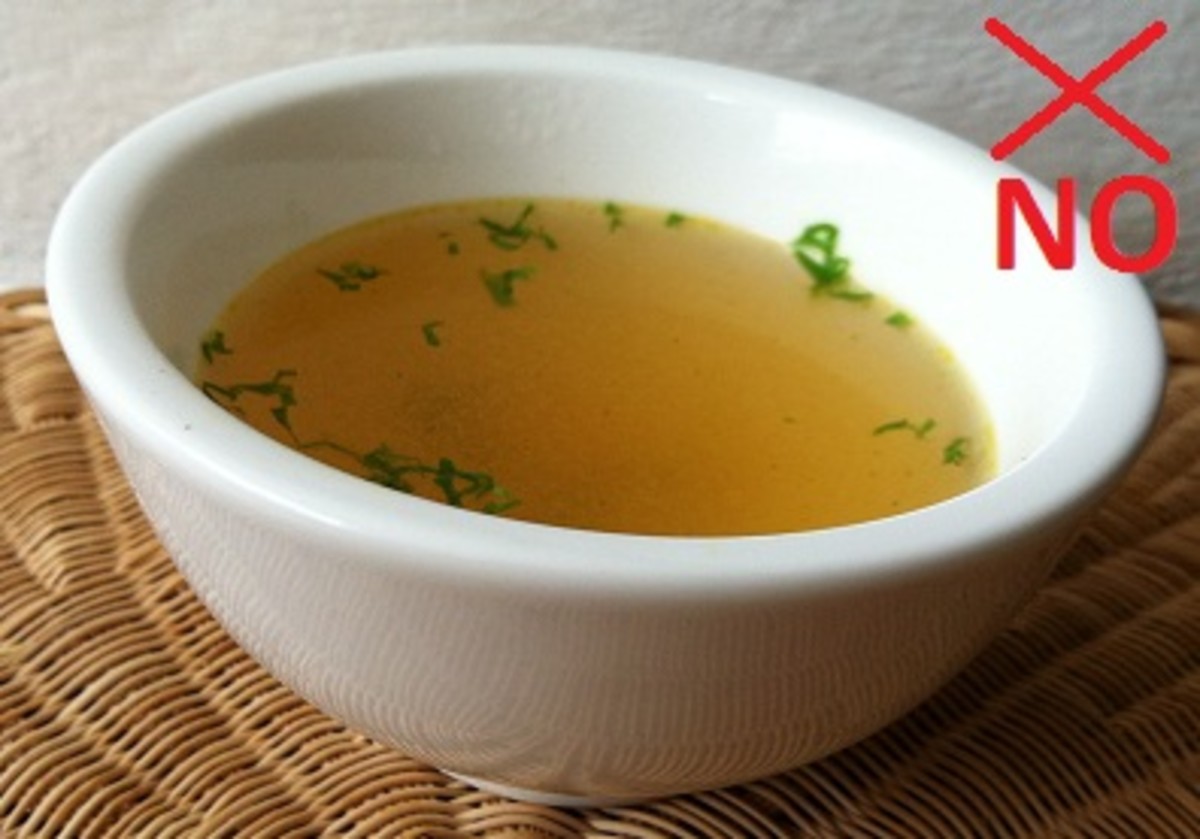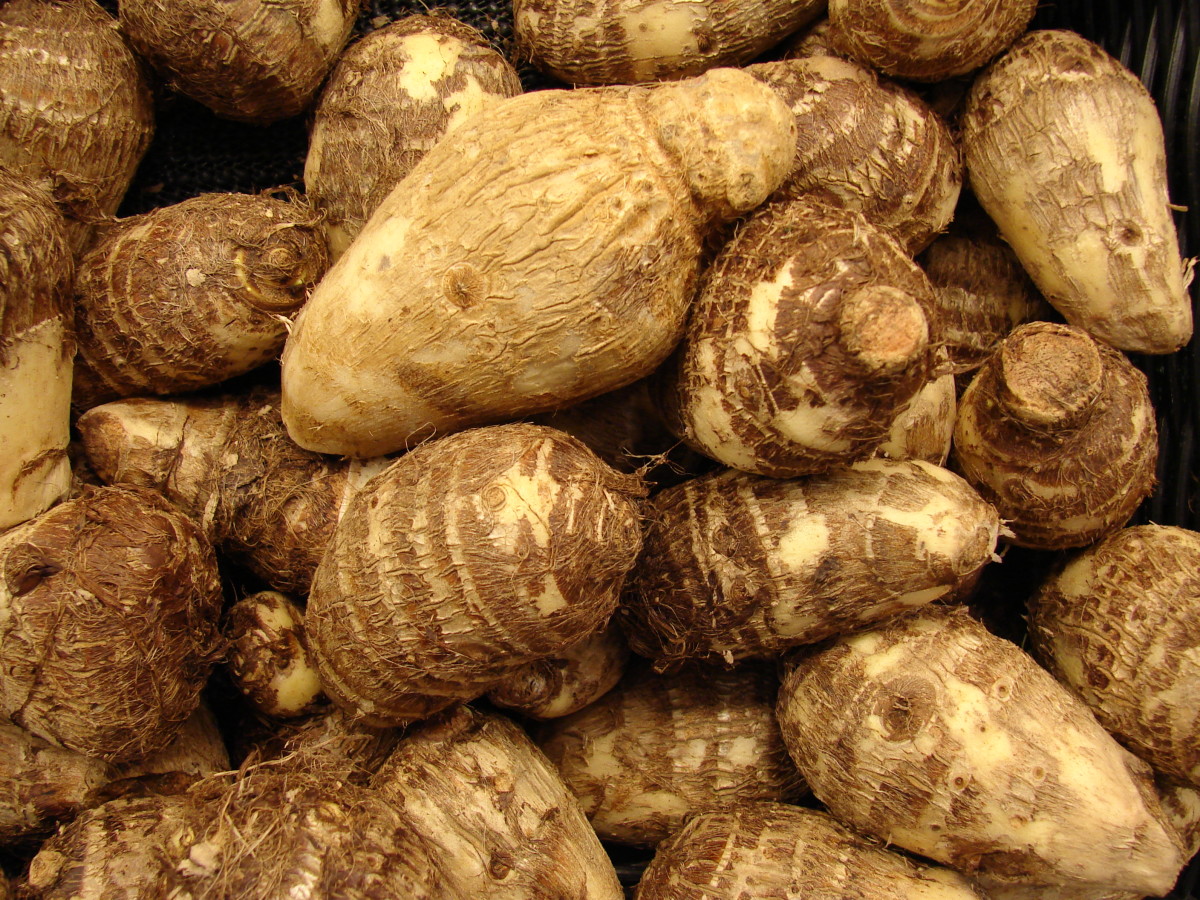Nutrition and Multiple Sclerosis - Part 5
Nutrition and Multiple Sclerosis - Recommendations and Further Information
Recommendations
It is interesting to note that different people have come to the same conclusions about the best diet for those with multiple sclerosis whilst coming from a completely different direction. Since there is very little that can be done for the condition with conventional medicine it is worth considering all the options. There is plenty of evidence, generally, about how diet affects our health and some specifically in relation to multiple sclerosis. There are many other conditions where a special diet is recommended, which is often much the same as discussed here. Whilst it is very hard to change your diet to the degree suggested it is not too difficult once you have got used to it and there are plenty of cookery books for special diets available as well as many foods in the health shop.
There has been a great amount of research recently on nutrition and multiple sclerosis but there is a need for large scale research on complete diets like those listed above. In the meantime I feel that all doctors should advise their patients all their patients (whatever their health condition) to try to follow the generally recommended healthy eating guidelines such as low salt, sugar and saturated fat and high intake of fruit, vegetables and unsaturated fats. They should also give some advice on label reading to make this easier for the patients. They should also be asked to notice if what they eat affects the severity of the symptoms of the condition.
After analysing the information for dietary guidelines for use with multiple sclerosis I recommend cutting back on, dairy products (milk, cheese and butter), gluten (wheat, rye and barley), aspartame, meat, saturated fats, sugar and synthetic chemicals, increasing intake of fish (particularly oily fish), unsaturated fats, fruits, vegetables, seeds, nuts and organic produce. In addition a good quality multi nutrient (containing the vitamins and minerals listed) should be taken along with some probiotics and some fatty acids (including omega-3 and omega-6), ginkgo biloba and DHEA.
Ideally every person with multiple sclerosis should be given the information contained in this essay. From there they can make their own decisions. I have also just read that it will soon be possible to get fatty acids on prescription for those with heart conditions. Maybe this, and possibly other supplements should also be considered for other conditions, such as multiple sclerosis.
APPENDIX A
SAMPLE MENUS
Breakfast
Rice, quinoa or millet cereal with fruit and milk alternative
Fruit smoothie
Melon
Grapefruit
Fruit salad
Gluten free bread or biscuits with nut butter
Lunch
Tuna salad
Chicken vegetable soup
Gluten free bread or biscuits with nut butter
Fruit juice
Fresh fruit
Dinner
Stir fry chicken with nuts and vegetables
Steamed fish with steamed vegetables
Chicken with salad
Snacks
Fruit (fresh or dried)
Vegetables - maybe with dips
Nuts (excluding peanuts)
Seeds (such as sunflower or pumpkin)
Rice cakes
APPENDIX B
DIETARY GUIDELINES
Cut back on:
- dairy products - cheese, milk and butter, goat's and sheep's products are preferable to cow's milk products
- gluten - mainly wheat, barley and rye
- aspartame
- meat
- saturated fats
- sugar
- salt
- synthetic chemicals
Increase intake of:
- fish - particularly oily fish
- unsaturated fats
- fruits
- vegetables
- seeds
- nuts
- organic produce
Recommended supplements:
- good quality multi nutrient (Solgar, Biocare, Higher Nature, Lamberts)
- this will contain most of the nutrients discussed in this essay.
- probiotics - containing a range of different probiotics including acidophilus and bifidus
- fatty acids - containing omega-3 and omega-6
- ginkgo biloba
- DHEA
APPENDIX C
FURTHER INFORMATION
Therapists
Susan Hough - Allergy Therapist - 01584 819302
Alan Buckwell - tests for allergies and a wide range of bodily imbalances - 01981 240306
Sandy Underhill - Homoeopath - 01597 851021
Caroline Collard - Natural Healer - 01597 811375
Contacts
Diet Research into the Cause and Treatment of Multiple Sclerosis, DIRECT-MS
5119 Brockington Rd. NW, Calgary, AB, T2L 1R7, Canada
Website: http://www.direct-ms.org
Email: info@DIRECT-MS.org
100%health
Carters Yard, London SW18 4JR
Website: http://www.patrickholford.com
Email: info@patrickholford.com
General nutrition and diet
Betty's House
Website: http://www.bettyshouselifeafterms.com/index.html
To help all people with Multiple Sclerosis believe that they need not be a victim of MS, but rather that they can be a victor; that they can be "enabled" by their MS rather than "disabled," and that the choice is up to them.
Multiple Sclerosis Resource Centre
The MS 24 Hour Telephone Counselling Service 0800 783 0518 (then press 1)
Website: http://www.msrc.co.uk
The Multiple Sclerosis Resource Centre (MSRC) is a proactive and innovative charity, passionately committed to supporting anyone affected by Multiple Sclerosis through access to unbiased information and advice. Our approach is to encourage individuals to make choices that are appropriate to their daily lives, empowering them to maximise their potential.Includes the Best Bet Diet Group
Paleo Diet
Website: http://www.paleodiet.com/ms/
This website has lots of information on dietary intervention with multiple sclerosis.
The Swank MS Foundation
PO Box 1658, Beaverton, OR 97075-1658, USA
Website: http://www.swankmsdiet.com/
Email: fdn@swankmsdiet.org
By working together, theSwank MS Foundationcan continue researching nutrition and its role in MS. We can also keep this valuable Web resource online and available to MS patients around the world.
Books
Multiple Sclerosis (By Appointment Only) by Jan De Vries ISBN: 0906391989 (available through Powys libraries)
MS: Something Can Be Done and You Can Do It : A New Approach to Understanding and Managing Multiple Sclerosis by Robert W. Soll, Penelope Grenoble ISBN: 0809254697
Multiple Sclerosis: A Self-Help Guide to Its Management by Judy Graham ISBN: 0892812427
The Multiple Sclerosis Diet Book by Roy Laver SwankandBarbara Brewer Dugan ISBN: 0385232799
BIBLIOGRAPHY
Alter, M et al (1974) Multiple Sclerosis and Nutrition. Archives of Neurology. 31, 267-72
Anderson, GD (2001) DHEA [INTERNET], Brea, California, USA Available From: <http://www.chiroweb.com/hg/14/23/09.html> [Accessed 19th December 2006]
Auricchio S et al (1985) Toxicity Mechanisms of Wheat and Other Cereals in Celiac Disease and Related Enteropathies J Pediatr Gastroenterol Nutr Dec, 4:6, 923-30.
Bagchi, D et al (2000) Free radicals and grape seed proanthocyanidin extract: importance in human health and disease prevention. Toxicology Aug 7;148(2-3):187-97
Bates C. et al (1989) A double-blind controlled trial of long chain n-3 polyunsaturated fatty acids in the treatment of multiple sclerosis. Journal of Neurology Neurosurgery & Psychiatry. 52, 18-22.
Bates, D et al (1978) Polyunsaturated fatty acids in treatment of acute remitting multiple sclerosis. Br Med J. 2: 6149, Nov 18, 1390-1
Blaylock, RL (2006) The Connection Between MS And Aspartame [INTERNET], USA, Available From: <http://www.rense.com/general53/ms.htm> [Accessed 28th October 2006]
Brewer, S (2002) The Daily Telegraph Encyclopedia of Vitamins and Minerals. London, Constable and Robinson Ltd.
Brostoff J and Gamlin L (1998) The Complete Guide to Food Allergy and Intolerance. 3rd ed. UK, Bloomsbury
Buljevac, D et al (2003) Self reported stressful life events and exacerbations in multiple sclerosis: prospective study. BMJ 327:646 Sep 20
Burgess, M (2002) Multiple Sclerosis - Theory and Practice for Nurses UK, Whurr
Calabrese, V.P. et al (1990) DHEA in multiple sclerosis: positive effects on the fatigue syndrome in a non-randomized study. In The Biologic Role of DHEA by Kalimi, M. and Regelson, W. Editors. New York: Walter De Gruyter, pp. 95-100.
Cantorna MT (2000) Vitamin D and autoimmunity: is vitamin D status an environmental factor affecting autoimmune disease prevalence? Proc Soc Exp Biol Med 223:230-3
Cohen, R (2001) The Role of Dairy in MS [INTERNET], USA Available From: <http://www.weeksmd.com/articles/ms/Multiple_Sclerosis_and_Dairy.html> [Accessed 19th December 2006]
Cohen, R (2006) Multiple Sclerosis [INTERNET], Oradell, New Jersey, USA, Dairy Education Board, Available From: < http://www.notmilk.com/ms.html> [Accessed 28th October 2006]
Connie DSNA, et al (2004) Multiple sclerosis and occult gluten sensitivity. Neurology. 62,2326-2327
de Bustos F et al (2000). Serum levels of coenzyme Q10 in patients with multiple sclerosis. Acta Neurol Scand 101(3):209-211
de Vries, J (2002) New Developments for MS Sufferers. By Appointment Only Series, Edinburgh, Mainstream Publishing
Deluca, HF and Cantorna, MT (2001) Vitamin D: its role and uses in immunology. FASEB J Dec;15(14):2579-85
Di Marco R (2004) Exacerbation of protracted-relapsing experimental allergic encephalomyelitis in DA rats by gluten-free diet. AOMIS. Oct;112(10), 651-5
Direct-MS (2006) Nutrition - Recommendations [INTERNET], Calgary, Canada, Available From: <http://www.direct-ms.org/recommendations.html> [Accessed 28th October 2006]
Dosch, M (2001) Researchers determine that multiple sclerosis and diabetes are closely linked diseases [INTERNET], Toronto, Canada, Hospital for Sick Children Available From: <http://www.astro.northwestern.edu/~lin/DHA/Chapter4.html> [Accessed 18th December 2006]
Embry, A (2006) Nutritional Factors and Multiple Sclerosis Part III: Food Proteins [INTERNET], Calvary, Canada Available From: <http://www.direct-ms.org/magazinecolumns.html> [Accessed 19th December 2006]
Feskanich, D et al (1997) Milk, dietary calcium, and bone fractures in women: a 12-year prospective study Channing Laboratory, Boston, Mass. 02115, USA.
Field, EJ and Shenton, BK (1975) Inhibitory effect of unsaturated fatty acids on lymphocyte-antigen interaction with special reference to multiple sclerosis. Acta Neurol Scand. 52: 2, 1975 Aug, 121-36
Food Standards Agency (2006) Safe Food and Healthy Eating for All [INTERNET], UK, Food Standards Agency Available From: <http://www.food.gov.uk> [Accessed 18th December 2006]
Ghezzi, A and Zaffaroni, M (2001) Neurological manifestations of gastrointestinal disorders, with particular reference to the differential diagnosis of multiple sclerosis. Neurol Sci Nov;22 Suppl 2:S117-22
Goldberg P (1974a) Multiple sclerosis: Vitamin D and calcium as environmental determinants of prevalence (A viewpoint). Part 1: Sunlight, dietary factors and epidemiology. International Journal of Environmental Studies. 6, 19-27.
Goldberg P (1974b) Multiple sclerosis: Vitamin D and calcium as environmental determinants of prevalence (A viewpoint). Part 2: Biochemical and Genetic Factors. International Journal of Environmental Studies. 6, 121-129.
Goldberg, P et al (1986) Multiple sclerosis: decreased relapse rate through dietary supplementation with calcium, magnesium and vitamin D. Med Hypothesis 21:193-200
Hall RP (1992) Dermatitis Herpetiformis Journal of Investigative Dermatology 99, 873-881
Hayes, CE (2000) Vitamin D: a natural inhibitor of multiple sclerosis. Proc Nutr Soc; 59:831-35
Henzi, Hugo and Schwyzer, RU (1992) Medical Hypothesis. Feb, 37, 115-118; summarised in Challem, J and Lewin, R (1993) New Clues to Multiple Sclerosis. Let's Live Jan, 66-68
Hoff S, Seiler H, et al (2005) Allergic sensitisation and allergic rhinitis are associated with n-3 polyunsaturated fatty acids in the diet and in red blood cell membranes. Eur J Clin Nut advance online publication.
Holford, P (2006) 100% for life [INTERNET] London, UK, Available From: <http://www.patrickholford.com>[Accessed 20th December 2006]
Iams, BA (2006) Betty's House...Life After MS [INTERNET], Davis, California, USA, Available From: <http://www.bettyshouselifeafterms.com/diet.html> [Accessed 28th October 2006]
Kaneko, S (2006) Protecting axonal degeneration by increasing nicotinamide adenine dinucleotide levels in experimental autoimmune encephalomyelitis models. Journal of Neuroscience. Sept 20
Kidd, PM (2005) Neurodegeneration from Mitochondrial Insufficiency: Nutrients, Stem Cells, Growth Factors, and Prospects for Brain Rebuilding Using Integrative Management [INTERNET], USA, Frank M Painter, Available From: < http://www.chiro.org/nutrition/ABSTRACTS/Neurodegeneration_from_Mitochondrial_Insufficiency.shtml> [Accessed 18th December 2006]
Lauer K (1997) Diet and multiple sclerosis. Neurology. Aug;49(2 Suppl 2), 55-61
Lin, DJ (2000) Brain Food [INTERNET], Evanston, IL, USA, All About DHA, Available From: < http://www.astro.northwestern.edu/~lin/DHA/Chapter4.html> [Accessed 18th December 2006]
Long, KZ and Santos, JI (1999) Vitamins and the regulation of the immune response. Pediatr Infect Dis J 18:283-90
Mai, Jesper et al. (1990) High dose antioxidant supplementation to M.S. patients: effects on glutathione peroxidase, clinical safety and absorption of selenium. Biological Trace Element Research. 24, 109-117.
Mann, D (2005) Debate over Dental Fillings [INTERNET], USA, CBS News, Available From: <http://www.cbsnews.com/stories/2005/08/12/health/webmd/main774242.shtml> [Accessed 18th December 2006]
Matthews, J (2005) Fish Oil [INTERNET], UK, Multiple Sclerosis Resource Centre, Available From: < http://www.msrc.co.uk/index.cfm?fuseaction=show&pageid=721 > [Accessed 12th November 2006]
McKeith, G (2004), You are what you eat. London, Michael Joseph Ltd
Mindell E (1995) DHEA the hormone for well-being. The Mindell Letter
Modie, J (2005) OHSU Study Finds Ginkgo Beneficial For MS Symptoms [INTERNET], Oregon, USA , Oregon Health and Science University, Available From: < http://www.ohsu.edu/ohsuedu/newspub/releases/042705ginkgo.cfm> [Accessed 28th October 2006]
Multiple Sclerosis Resource Centre (2006) Best Bet Diet Group [INTERNET], Colchester, Essex,UK Available From: <www.ms-diet.org> [Accessed 19th December 2006]
Munger, KL et al (2004) Vitamin D intake and incidence of multiple sclerosis. Neurology. 62 (Jan 13), 60-65
Myanaga, K., K. Yonemura, and K. Yazawa (1996) DHA shortens P300 latency in healthy persons. In International Conference on Highly Unsaturated Fatty Acids in Nutrition and Disease Prevention Barcelona, Spain.
Nieves J.et al (1994) High prevalence of vitamin D deficiency and reduced bone mass in multiple sclerosis. Neurology. 44, 1687-1692.
Nordvik, I et al (2005) Effect of dietary advice and n-3 supplementation in newly diagnosed MS patients. Prostaglandins Leukot Essent Fatty Acids. Nov;73(5), 73(5), 397-404.
Oldstone, MB, (1998) Molecular mimicry and immune-mediated diseases. Viral Immunobiology Laboratory, the Scripps Research Institute, La Jolla, California.
Payne A (2001) Nutrition and diet in the clinical management of multiple sclerosis. J Hum Nutr Diet 13:349-57
Pradip K et al (1991) Evidence for Inceased Lipid Peroxidation in Multiple Sclerosis. Department of Neurology, Cook County Hospital, Chicago. 25 July
Ransohoff, Richard M (1990) Vitamin B 12 deficiency and multiple sclerosis. The Lancet. May 26, 1285-1286.
Ray, SD et al (2000) Unique organoprotective properties of a novel IH636 grape seed proanthocyanidin extract on cadmium chloride-induced nephrotoxicity, dimethylnitrosamine (DMN)-induced splenotoxicity and mocap-induced neurotoxicity in mice. Res Commun Mol Pathol Pharmacol 107(1-2):105-28
Reynolds EH. (1992) Multiple sclerosis and vitamin B12 metabolism. J Neuroimmunol. Oct;40(2-3):225-30
Rona, Dr Zoltan P (2006) Multiple Sclerosis and Natural Therapies [INTERNET], Vancouver, Canada , Available From: <http://www.selene.com/healthlink/scleros.html> [Accessed 28th October 2006]
Sandyk RR (1993) Vitamin B12 and its relationship to age of onset of multiple sclerosis. Int J Neurosci 71:93-99
Serafini, C (2006) Multiple Sclerosis "Many Scars" [INTERNET], Enzymus Medical, Scottsdale, AZ, USA Available From: <http://www.enzymus.com/multiple_Sclerosis > [Accessed 2nd February 2007]
Shumin M et al,(2000) Dietary Fat in Relation to Risk of Multiple Sclerosis among Two Large Cohorts of Women. American Journal of Epidemiology. Vol 152, No 11
Sinclair HM (1956) Deficiency of essential fatty acids and atherosclerosis. Lancet. 1, 381-3
Stadtarztlicher Dienst, WA (2000) Gingko Proves to be an Effective Alzheimer's Disease Treatment [INTERNET], Zurich, Switzerland, Young Again Nutrients, Available From: < http://www.newtrients21.com/ginefaltreat.html > [Accessed 18th December 2006]
Swank MS Foundation (2006) Swank MS Foundation [INTERNET], Beaverton, Oregon, USA, Available From: <www.swankmsdiet.com> [Accessed 28th October 2006]
Swank, RL (1950) Multiple sclerosis: a correlation of its incidence with dietary fat. Am J Med Sci. 220, 421-30.
Swank, RL (1954) Effect of high fat feedings on viscosity of the blood. Science. 120, 427-8.
Swank, RL (1970) Twenty years on a low fat diet. Archives of Neurology. 23, 460
Swank, RL (1988) Multiple Sclerosis: The lipid relationship. American Journal of Clinical Nutrition. 48, :1387
Swank, RL and Bourdillon RB (1960) Multiple Sclerosis: Assessment of Treatment with a Modified Low-Fat Diet. Journal of Nervous and Mental Disease. 131, 468-88
Swank, RL and Brewer Dugan, B (1987) The Multiple Sclerosis Diet Book. 4th ed. Oregon, USA, Doubleday
Swank, RL et al. (1952) Multiple sclerosis in rural Norway: Its geographic and occupational incidence in relation to nutrition. New England Journal of Medicine. 246, 721.
Swank, Roy et al (1990) Effect of low saturated fat diet in early and late cases of multiple sclerosis. The Lancet. July 7, 336, 37-39
Syburra, C and Passi, S (1999) Oxidative stress in patients with multiple sclerosis. Ukr Biokhim Zh 71: 112-5.
The Hospital for Sick Children (2003) Researchers determine that multiple sclerosis and diabetes are closely linked diseases [INTERNET], Toronto, Canada , The Hospital for Sick Children, Available From: < http://www.sickkids.ca/releases/msresearch.asp> [Accessed 8th November]
The MS Society (2006) Can Glucosamine be used as a therapy for MS? [INTERNET], London,UK Available From: <www.mssociety.org.uk/news_events/news/research/glucosamine.html> [Accessed 8th November 2006]
Theofilopoulos, AN, 1995b, The basis of autoimmunity: Part I Mechanisms of aberrant self-recognition. Immunology Today, v. 16, p. 90-98.
Timmerman GM et al (1999) Eating patterns in women with multiple sclerosis. J Neurosci Nurs. 31,152-158
Traill, B (2006) Suppose We All Ate a Healthy Diet [INTERNET], UK, University of Reading, Available From: < http://www.extra.rdg.ac.uk/news/details.asp?ID=682> [Accessed 18th December 2006]
Uhlenhuth, K (2001) Here He Comes to Save Your Health [INTERNET], Kansas, USA Available From: <http://www.mult-sclerosis.org/news/Sep2001/Probiotics.html> [Accessed 19th December 2006]
van der Goes, A (1998) Reactive oxygen species are required for the phagocytosis of myelin by macrophages. J Neuroimmunol Dec 1;92(1-2):67-75
van der Mei IA et al (2003) Past exposure to sun, skin phenotype, and risk of multiple sclerosis: case-control study. BMJ. Aug 9;327(7410), 316.
van Meeteren ME (2005) Antioxidants and polyunsaturated fatty acids in multiple sclerosis. Eur J Clin Nutr. Dec;59(12), 1347-61.
VanAmerongen, BM et al (2004) Multiple sclerosis and vitamin D: an update. European Journal of Clinical Nutrition. 1-15
Weinstock-Guttman B, et al (2003) A Randomized Study of Low Fat Diet with Omega-3 Fatty Acid Supplementation in Patients with Relapsing Remitting Multiple Sclerosis. Abstract [P02.139], AAN Annual Meeting
Wekerle, H and Hohlfeld, R (2003) Molecular mimicry in multiple sclerosis. N Engl J Medicine July 10; 349:2
Willett, WC (2001) Eat Drink and be Healthy: The Harvard Medical School guide to healthy eating Northampton, MA, USA, Free Press
Williams, CM et al (1988) Iron and zinc status in multiple sclerosis patients with pressure sores. Eur J Clin Nutr Apr;42(4):321-8
Wucherpfennig KW and Strominger JL, (1995) Molecular mimicry in T cell-mediated autoimmunity: viral peptides active human T cell clones specific for myelin basic protein. Department of Molecular and Cellular Biology, Harvard University.
Zhang, GX et al (2005) Glucosamine abrogates the acute phase of experimental autoimmune encephalomyelitis by induction of Th2 response. J Immunol. Dec 1;175(11), 7202-8









